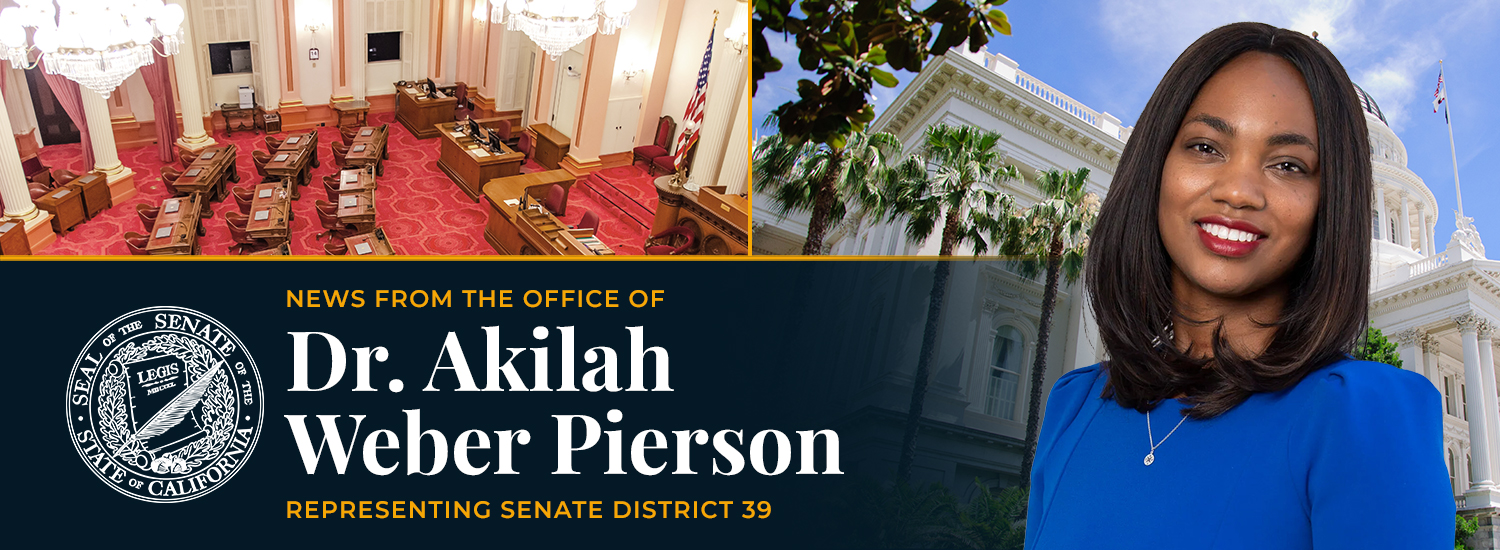
California Legislative Black Caucus Announces 2025 Legislative Priorities
FOR IMMEDIATE RELEASE
February 20, 2025
Contact: Nick.Fletcher@asm.ca.gov
(916) 319-3868
CALIFORNIA LEGISLATIVE BLACK CAUCUS ANNOUNCES 2025 LEGISLATIVE PRIORITIES
The California Legislative Black Caucus continues celebrating Black History Month with the release of its Road to Repair 2025 priority bill package.
SACRAMENTO, CA—Today, the California Legislative Black Caucus (CLBC) continues its push for justice and equality with the introduction of its Road to Repair 2025 Priority Bill Package.
The CLBC forges full steam ahead with its multi-year effort to repair the generational harms caused by the cruel treatment of African slaves in the United States and decades of systematic deprivation and injustice inflicted upon Black Californians.
Grounded in the recommendations put forth by the California Reparation Task Force, this year’s legislative efforts continue the CLBC’s commitment to addressing the enduring badges of systemic racism, discrimination, and inequity by advancing policies that promote equity, economic opportunity, and justice for Black Californians.
“This bill package is about repairing centuries of economic damage and abuse that was inflicted on Black Californians,” said Senator Akilah Weber Pierson, M.D., Chair of the California Legislative Black Caucus. “This legislative package is a chance to transform the promise of equality into a lived reality, so that everyone can achieve the American dream.”
The more than 1,600-page report details how the State of California enacted, and unevenly enforced, unjust laws that intentionally and unintentionally caused ongoing destructive outcomes to African Americans—harms from which Black Californians continue to feel the effects of today.
The CLBC Road to Repair 2025 Bill Package seeks to eliminate the generational harms and racial disparities created by these cruel arcane laws, especially for health, wealth, housing, and education.
“This year, as we do every year, we will fight repair the harms of the past and create new ladders of opportunity for Black Californians” said Assemblymember Isaac Bryan, Vice Chair of the California Legislative Black Caucus.
“The President of the United States has a spent his first month in office fighting to erase, disempower, and defund federal efforts to improve the contentions of life for Black people. Here in California, we are prepared and willing to stand up and fight back,” said Vice Chair Bryan.
“Our Caucus is focused on repairing the harms of the past, and doing all we can to prevent harm in the present. We believe in a California and a Country that is diverse, equitable, inclusive, and full of opportunity for all people” said the vice chair.
Our fight for justice comes at a pivotal moment in American history, as extremists relentlessly push socially regressive policies such as Project 2025, threatening to roll back decades of ground in the fight to civil rights and equity.
The CLBC stands firm in its commitment to protecting Black Californians and ensuring that the state upholds its promise of fairness and opportunity for all.
The Road to Repair 2025 Bill Package is not only about acknowledging the past, but also a commitment to build a more just and equitable future by addressing the systemic barriers that Black Californians continue to face.
The CLBC calls on Governor Newsom, lawmakers, advocates, and the public to stand in solidarity and support these efforts to create long-lasting change for Black communities across California.
The measures below represent CLBC Road to Repair 2025 Priority Bill Package at its current stage. As is with all proposals, the package is subject to change as measures wind their way through the legislative process. For more information on each measure, please contact the respective legislator’s office.
CLBC ROAD TO REPAIR 2025 PRIORITY BILL PACKAGE
• ACA 6 (Wilson)—would prohibit slavery in all forms
• ACA 7 (Jackson)—seeks to clarify Prop 209 to ensure state, county, and local institutions understand intent and parameters in current statute
• AB 7 (Bryan)—would authorize priority admissions for descendants of American chattel slavery to higher education institutions
• AB 57 (McKinnor)—seeks to allocate a portion of Home Purchase Assistance Funds to first-time home buyers who are descendants of American chattel slavery
• AB 62 (McKinnor)—seeks to create pathways for victims of racially-motivated eminent domain to seek redress
• AB 475 (Wilson)—seeks to require CDCR to develop voluntary work programs for institutional residents
• AB 742 (Elhawary)—seeks designate descendants of American chattel slavery for priority when issuing professional licenses
• AB 766 (Sharp-Collins)—seeks to, among other things, require racial equity analyses for Executive branch agencies and respond accordingly to further advance racial equity.
• AB 785 (Sharp-Collins)—would create the Community Violence Interdiction Grant Program and fund community-driven solutions to decrease violence in neighborhoods and schools
• AB 801 (Bonta)—would direct the Department of Financial Protection and Innovation, in collaboration with the Civil Rights Department, to identify and address ongoing mortgage lending discrimination.
• AB 935 (Ransom)— would require the Civil Rights Department and the Department of Education to collect anonymized data to determine how complaints are handled.
• SB 437 (Weber Pierson)—would require the California State University to independently research and report on scientific methodology to determine an individual’s genealogical fingerprint for the purpose of verification as a descendant of an enslaved person in the United States.
• SB 464 (Smallwood-Cuevas)—seeks to expand employer-employee demographic data reporting to the Civil Rights Department for the purpose of enforcing civil rights protection under existing law.
• SB 503 (Weber Pierson)—seeks to regulate the use of artificial intelligence in critical healthcare applications to mitigate racial biases present in commercial algorithms.
• SB 510 (Richardson)—seeks to require complete and accurate K-12 curriculum regarding racial disparities, including impacts of segregation, slavery, and systemic discrimination.
• SB 518 (Weber Pierson)—would establish the Bureau of Descendants of American Slavery.